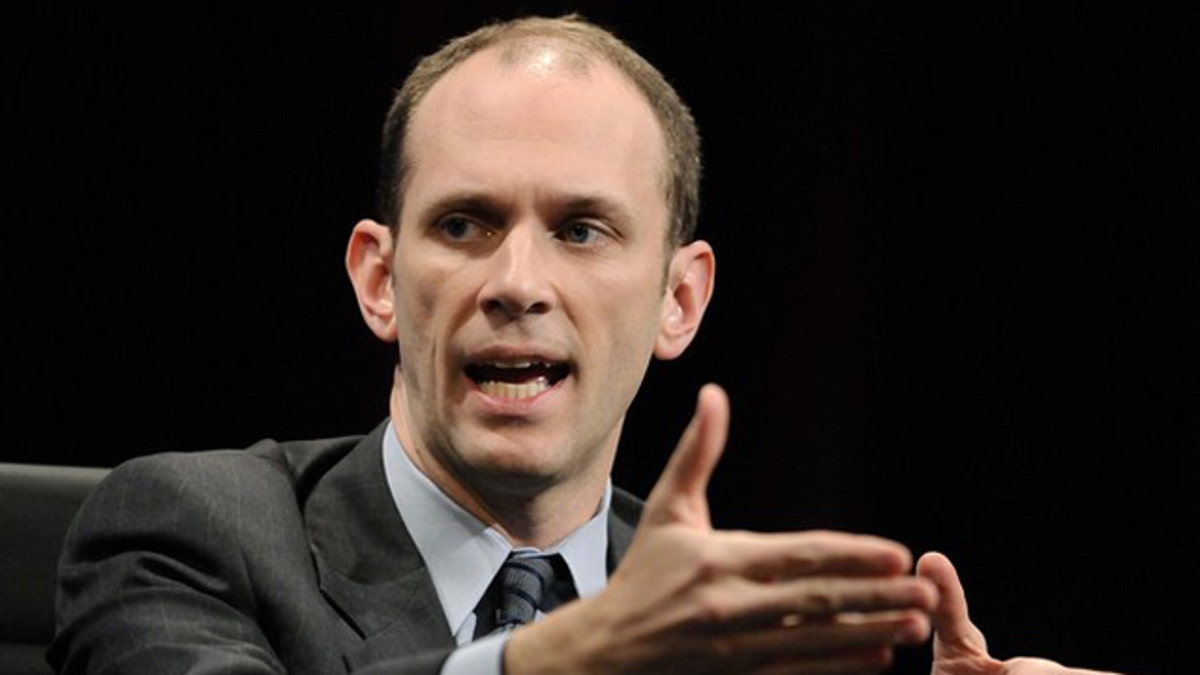
White House Council of Economic Advisers Chairman Austan Goolsbee gestures during the 2010 meeting of the Wall Street Journal CEO Council in Washington Nov. 16. (Reuters)
The top White House economic adviser warned lawmakers Sunday that the United States faces a catastrophe if Congress does not raise the debt ceiling, as spend-averse Republicans indicated they'd be willing to support the increase so long as certain conditions are met.
The debt ceiling debate is one of the first major legislative clashes on tap as lawmakers return to Washington this coming week for the start of the 112th Congress. The $13.9 trillion national debt is creeping closer to its $14.3 trillion ceiling, and a vote to increase that limit is expected in the spring.
Though lawmakers will no doubt use the vote to extract promises over future spending cuts, White House Council of Economic Advisers Chairman Austan Goolsbee urged Congress not to "toy with" the issue.
"This is not a game," Goolsbee said on ABC's "This Week." "If we hit the debt ceiling, that's essentially defaulting on our obligations, which is totally unprecedented in American history.
"The impact on the economy would be catastrophic. I mean, that would be a worse financial economic crisis than anything we saw in 2008," Goolsbee said. "I don't see why anybody's talking about playing chicken with the debt ceiling."
He suggested that if the vote collapses, "that would be the first default in history caused purely by insanity."
But some lawmakers argue that what's insane is to routinely raise the ceiling without changing Washington's spending habits. Republicans on Sunday indicated they could support the increase, but made clear the administration would have to meet their demands.
Allen West, a newly elected Republican congressman from Florida, said that while he doesn't think the government will shut down, a serious discussion about controlling spending must be a condition.
"It's not going to be a blank check that comes from Allen West," he said on "Fox News Sunday."
Sen. Lindsey Graham, R-S.C., said on "Meet the Press" that he would not vote for the increase until he sees a plan to deal with long-term debt reduction -- including a plan that addresses Social Security and a commitment to return to 2008 spending levels.
Pat Toomey, a newly elected Republican senator from Pennsylvania, said he wouldn't vote for the increase unless he sees "substantive progress" on spending cuts. He said Congress should approach the debt limit by holding votes periodically for small increases and extracting a "major concession" on spending cuts every time.
"We are on a disaster track," he said.
Goolsbee cautioned Congress not to go too far in tightening the budget belt while the nation is still recovering from a recession.
"If you're going to go skimp on important investments that we need to grow, you're making a mistake," he said, arguing that the recession itself was the biggest driver of the deficit over the last year.




